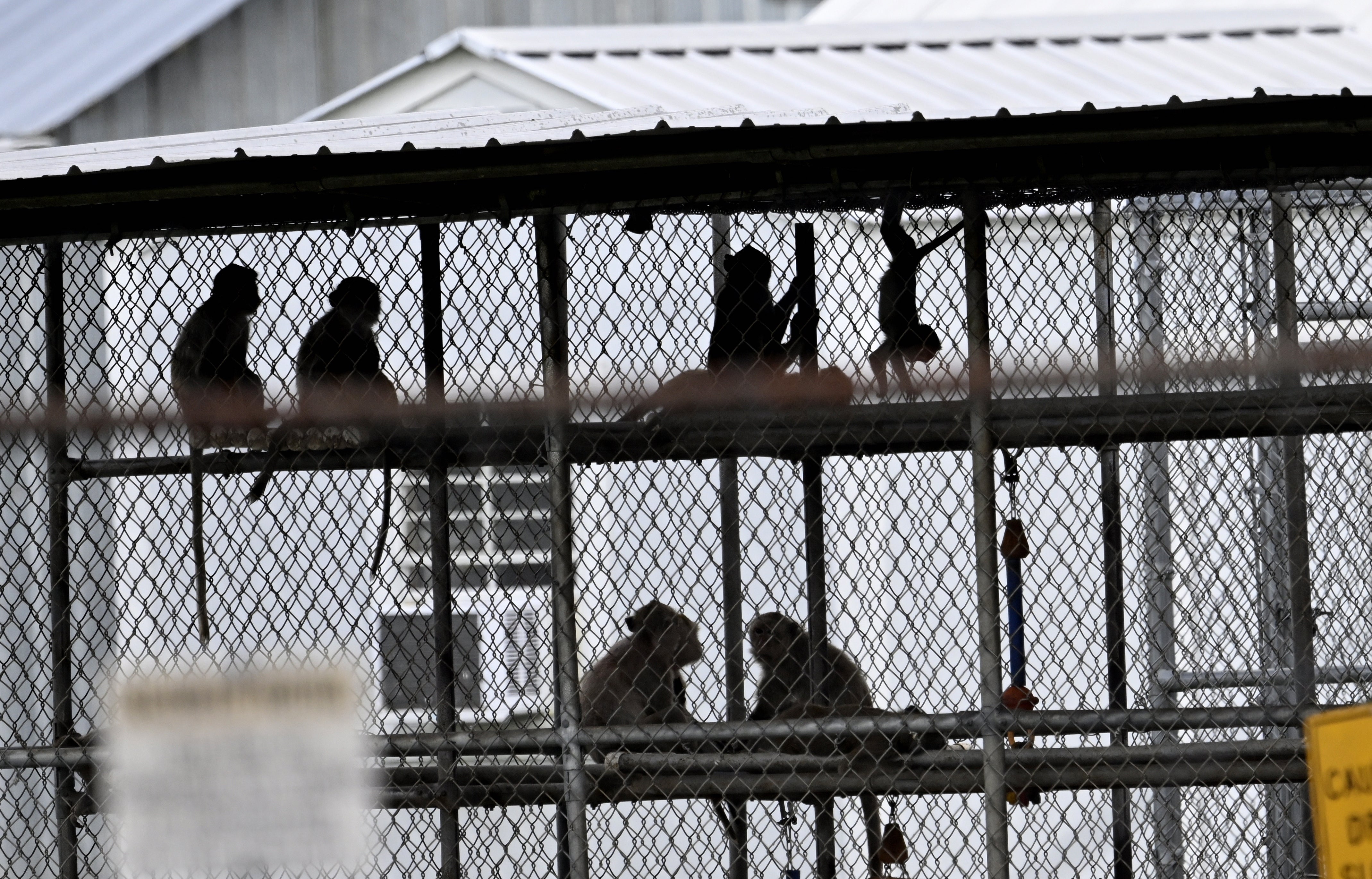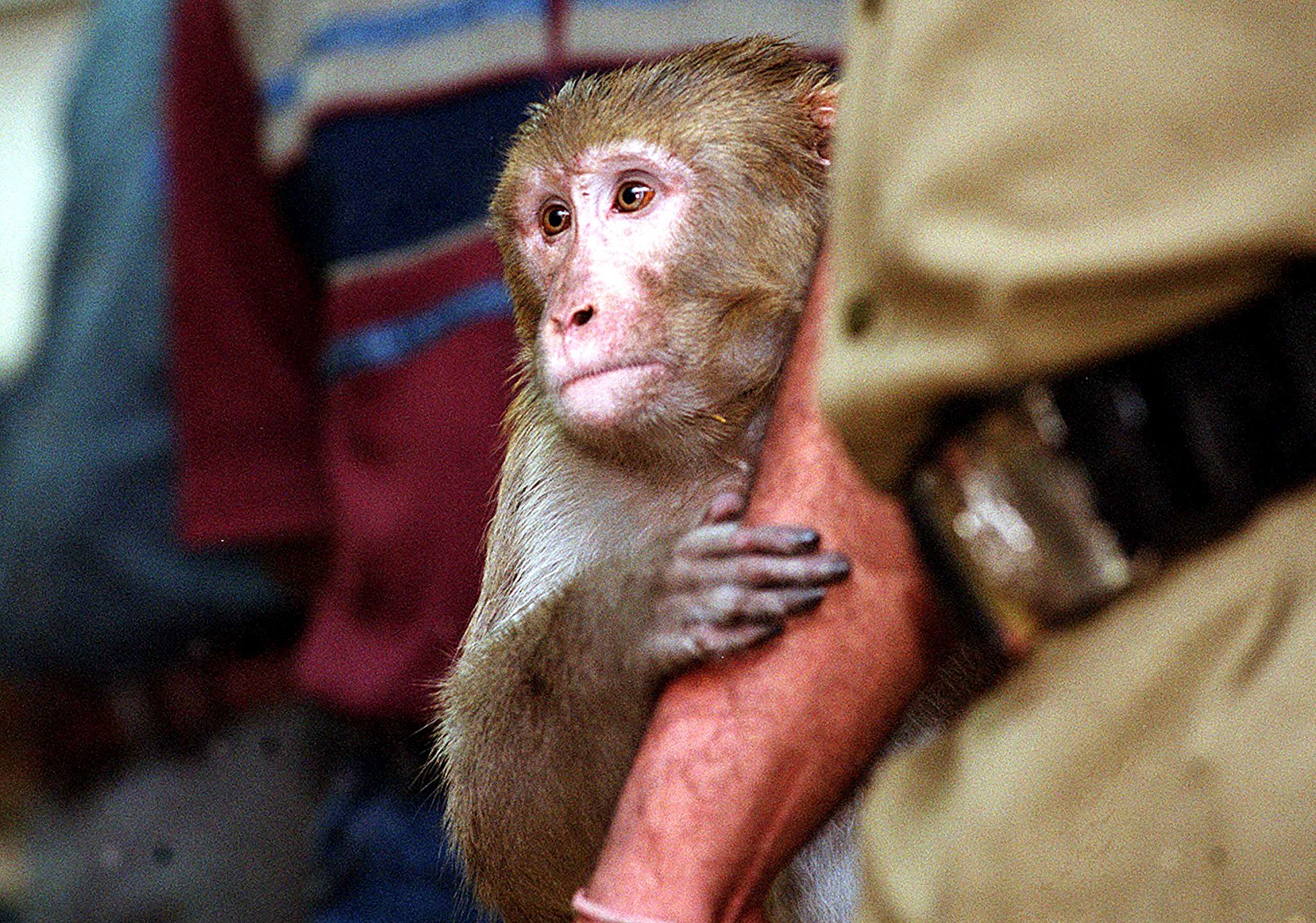18 monkeys remain missing after dozens escaped from South Carolina lab
The escaped primates do not pose a threat to public health, the laboratory said

Your support helps us to tell the story
From reproductive rights to climate change to Big Tech, The Independent is on the ground when the story is developing. Whether it's investigating the financials of Elon Musk's pro-Trump PAC or producing our latest documentary, 'The A Word', which shines a light on the American women fighting for reproductive rights, we know how important it is to parse out the facts from the messaging.
At such a critical moment in US history, we need reporters on the ground. Your donation allows us to keep sending journalists to speak to both sides of the story.
The Independent is trusted by Americans across the entire political spectrum. And unlike many other quality news outlets, we choose not to lock Americans out of our reporting and analysis with paywalls. We believe quality journalism should be available to everyone, paid for by those who can afford it.
Your support makes all the difference.More than half of the43 monkeys that recently escaped from a biomedical research lab in South Carolina have been safely captured, officials said.
As of Sunday night, 25 of the primates are back home at the Alpha Genesis Primate Research Center lab, CEO Greg Westergaard confirmed.
“All are in good health,” Westergaard said in a statement to WCSC. “Others remain close by in trees.”
Yemassee Police Department announced on Saturday night that a young female rhesus macaque monkey had been safely captured and brought back to the lab.
“She is well and having a peanut butter and jelly sandwich,” Westergaard said in a statement obtained by ABC News.
Twenty-four more monkeys were captured shortly after and now 18 remain.
The monkeys escaped from the lab on Thursday after a caretaker failed to secure a door. Alpha Genesis is a company that provides pathogen-free primates for biomedical research worldwide.

The company said the monkeys that have escaped do not pose a threat to the public because they have never been tested on and are too young to carry disease. However, Alpha Genesis asked that the public be aware of other potential escaped monkeys that have escaped and not interact with them.
They have specifically asked people not to fly drones in the vicinity where they escaped to prevent the primates from being spooked.
Currently, a group of primates are residing along the facility’s fence line and have continued to engage with other primates inside the facility.
Alpha Genesis said they are “actively deploying” traps baited with food in the hopes of capturing the other monkeys.
Rhesus macaque primates have been used for nonhuman testing for centuries because they share 93 percent of DNA with humans. They have been crucial in developing lifesaving vaccines like those for Covid-19.

For those who support using nonhuman primates for medical research, maintaining a supply of monkeys is essential for biomedical development.
Alpha Genesis provides the primates by using their facilities as a breeding ground to raise the animals for research purposes.
This is not the first time the primates have escaped from the facility. In 2016, more than two dozen primates escaped but were later captured, according to the Post and Courier.
Join our commenting forum
Join thought-provoking conversations, follow other Independent readers and see their replies
Comments